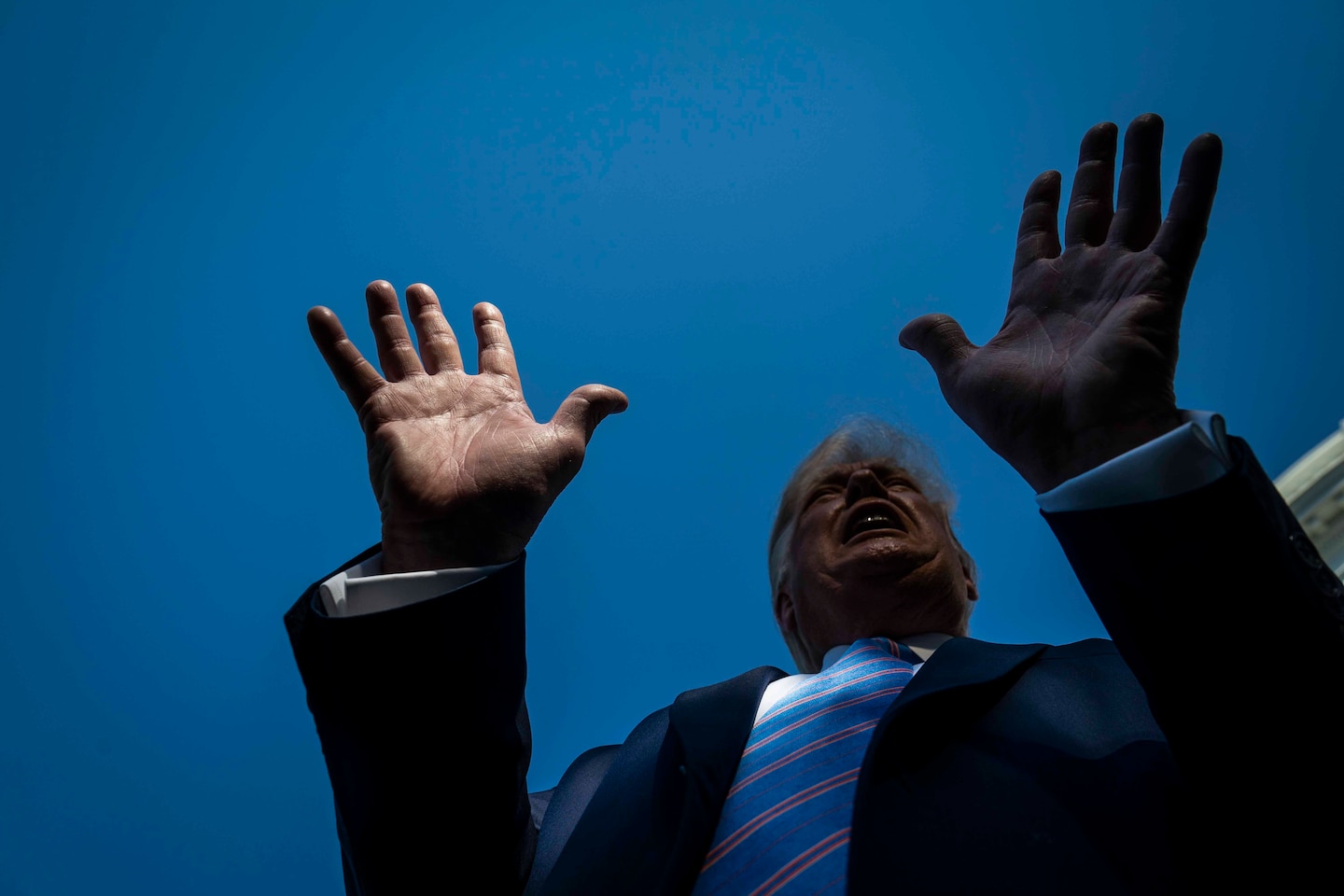The covid-19 crisis exposes the limits of a reality-TV presidency

The presidency has become the symbol of American superpower status, with pictures of the White House recognizable around the globe. But the Constitution actually makes the office weak by design, giving it among the most limited set of powers of any head of government in the world. Preeminent scholar Richard Neustadt noted that to get anything done, the president “has to use whatever influence he does possess on Congress, agencies, the media, state governments, private interests, foreign allies, and public opinion abroad as well as at home. . . . Compared to all the oppositions, even a ‘strong’ president is weak.”
Some argue the accumulation of presidential power through executive actions has been vast and dangerous. Others note this expansion is mostly in the realm of international affairs, arguing that there are really two presidencies, a strong one in foreign policy and a weak one in domestic matters. Certainly, when compared to parliamentary systems, where the head of government essentially controls both the executive and legislative branch, the American presidency is notable for its limited authority.
A national crisis has always required a heroic exertion of presidential power. It was Herbert Hoover’s failure to use his office to tackle the Great Depression that led to Franklin D. Roosevelt’s victory, and it was Roosevelt’s effective and creative use of the position that rescued the economy. Ever since then, presidents have understood that, when facing a real challenge, they must use all their talents and efforts to mobilize the government’s resources.
The covid-19 pandemic is just such a challenge, one of the biggest the country has ever faced. But tackling it requires that the president take charge, coordinating and overseeing the actions of dozens of federal agencies, making sure they are working in concert. It means close cooperation with the states, allowing for some variation and experimentation but still ensuring that core national standards and objectives are met. And it requires a clear, consistent message that educates and leads the public. It is hard work.
A comparison with Germany is instructive. The country also has a weak central government and its chancellor has limited powers, partly because of the Nazi past and partly because of a long tradition of decentralization. As a result, when covid-19 struck, Berlin, too, faced the problem of multiple sources of authority. But the central government managed to coordinate its public health agencies successfully, steering the national response while exercising a light touch that allowed for local experimentation and the quick rollout of testing by private companies and laboratories. Chancellor Angela Merkel acted as the national guide, presenting the public with clear scientific criteria for government decisions, at one point explaining the concept of “R0” (the rate of spread) and why it was crucial to keep that number under one. The result is that Germany today has 110 deaths per million people compared with America’s 460.
Trump handles the bully pulpit aspect of the White House effectively. I don’t like the ideas he puts forward, but he does so in an innovative way, using all the tools of social media to amplify his voice and get out his message. Unfortunately, during the pandemic he has used his platform to promote unproven cures, discourage mask-wearing and stoke anti-lockdown sentiment. Worse still, Trump seems to think public relations is the essence of his job. As covid-19 hit, he made bold announcements about testing at every Walmart and CVS, tests with near-instant results, and massive quantities of new supplies. For the most part, he failed to deliver.
This is how Trump has handled most of his presidency, from the travel bans to repealing Obamacare. Half-baked policies are summarily announced, often on Twitter. They then get amended by federal agencies or struck down by courts or reversed by Congress. The initial chaos dies down, but little actually gets done. The point of policy for Trump is political theater, not execution. Even when he uses presidential powers — like sending federal troops to “restore law and order” in cities — it’s to make a polemical statement, not to solve an actual problem.
Trump has turned the American presidency into a reality television show. But the covid-19 pandemic has painfully demonstrated that you cannot solve a national crisis with sound bites and tweets.
Read more:






